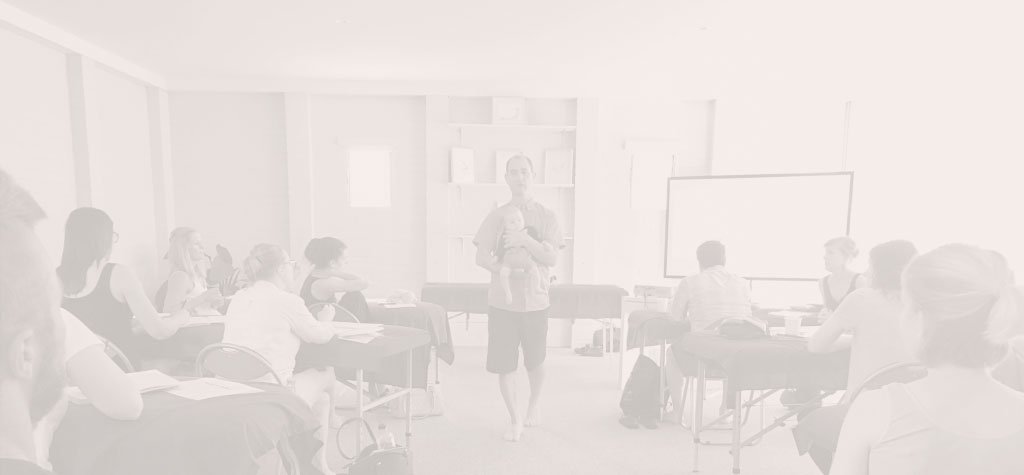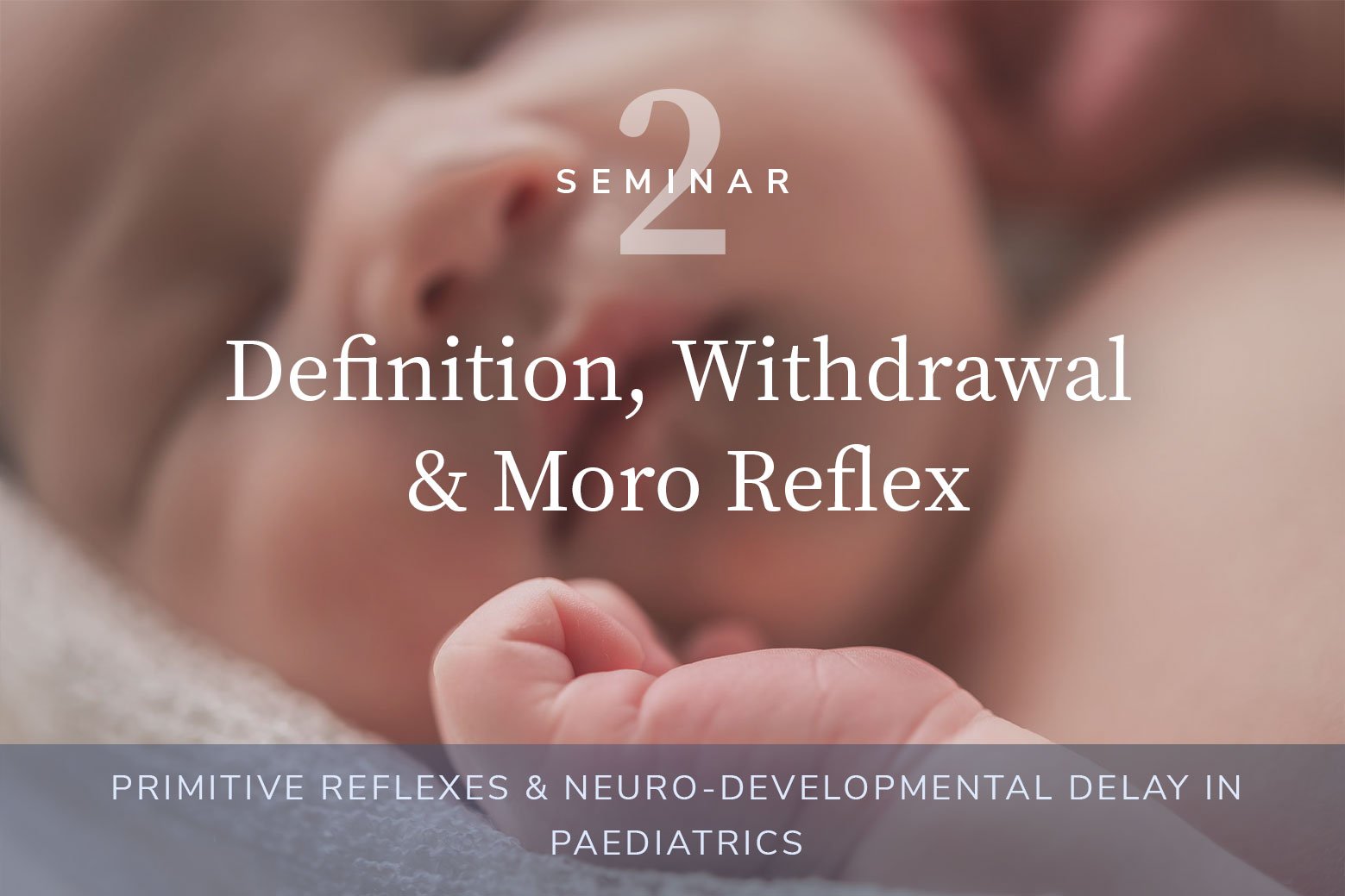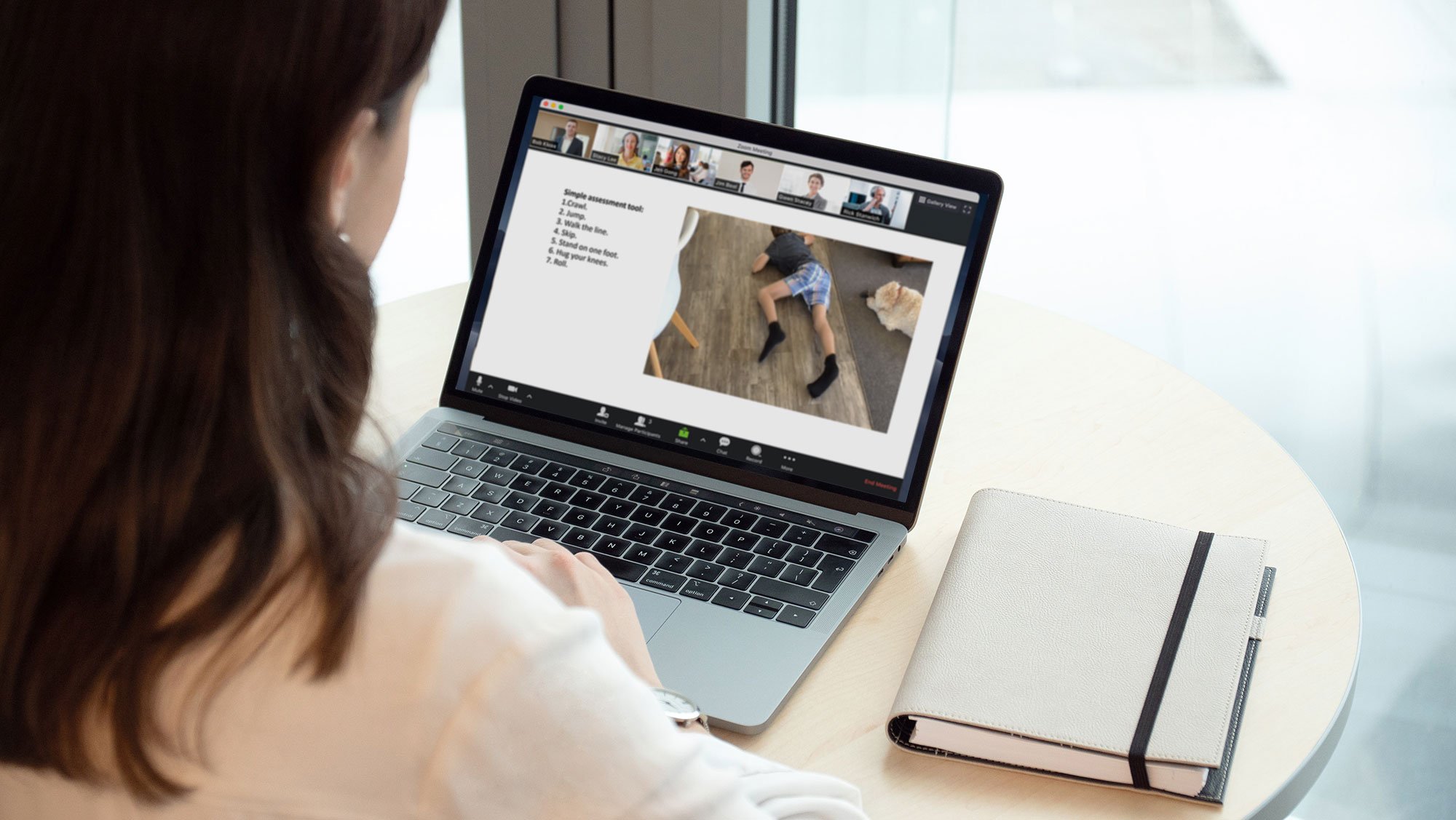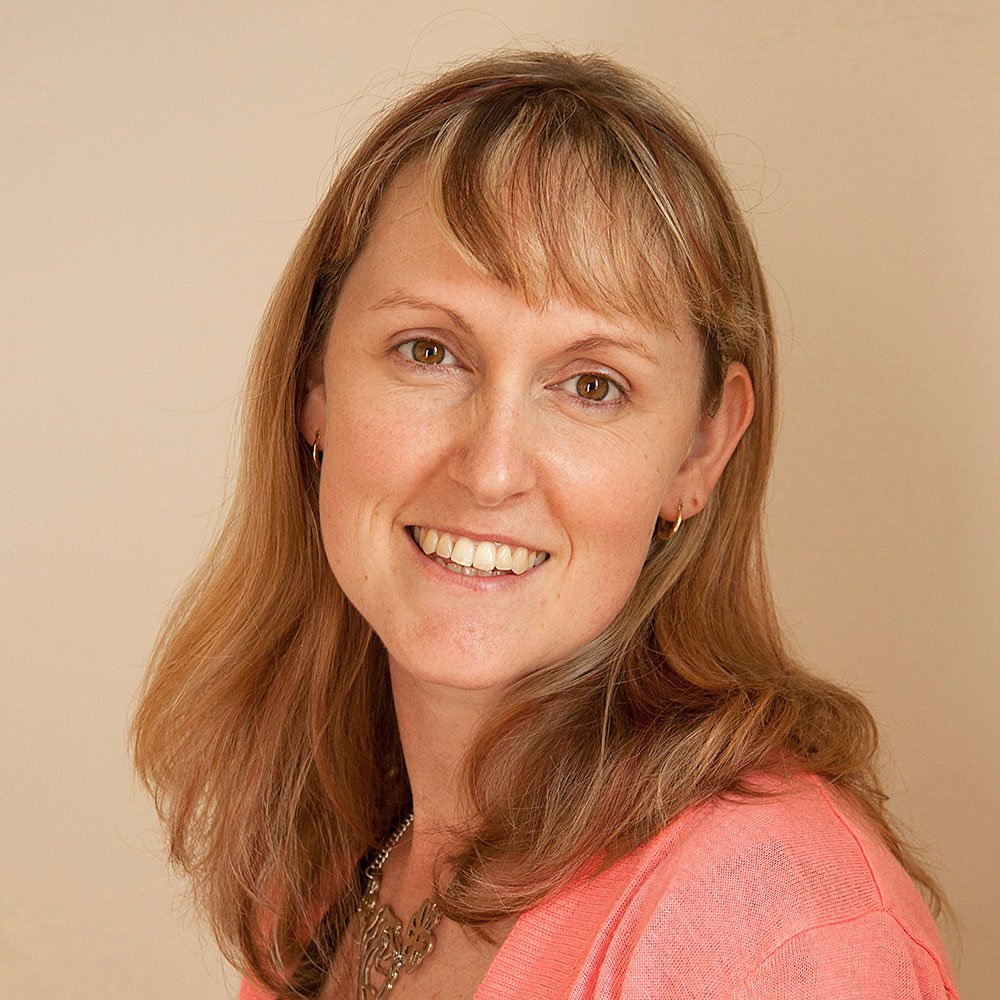
Primitive Reflexes & Neuro-developmental Delay in Paediatrics
4-part online course • available on-demandOften children with developmental delay fly under the radar—they achieve, but not to their fullest potential. Working with primitive reflexes assists them in flourishing to their highest potential.
In this course, you will:
Gain clarity over primitive reflexes and how they fit into the neuro-developmental picture.
Discover additional diagnostic tools for treating paediatric patients.
Develop more of a structured framework for working with children with developmental delay.
Learn practical techniques for assisting children with neuro-developmental delay.
WHY PRIMITIVE REFLEXES MATTERPrimitive reflexes & their connection to neurological delay in paediatrics
Children may present with musculo-skeletal issues and underlying behavioural and learning concerns. Manual therapists can be familiar with assessing primitive reflexes as a part of the general paediatric neurological examination from birth to six-months; however, if development is progressing normally at six months of age, these tests are rarely repeated in the older child. The child can continue throughout their life with the absence of pathology, however, there may be behavioural and learning concerns associated that have been dismissed by practitioners, teachers and their family throughout their life causing a distorted clinical picture. Manual therapy is usually not enough for the child to reach their full potential and reach milestones. Therefore, it’s not pathology but these delayed reflexes that are inhibiting normal development and preventing children from reaching normal milestones.
This course allows manual therapists to understand how primitive reflexes affect normal development and allows the therapist to take any existing paediatric knowledge and put it through a developmental lens.
COURSE CONTENTSSeminar 1
This seminar introduces you to primitive reflexes through a neuro-developmental lens. It contains practical components with diagnosis and assessment tools that allows you to draw a diagnostic picture for a paediatric patient with neuro-developmental delay. These principles will help you to better understand, diagnose and assist in the treatment of a paediatric patient with neuro-developmental delay.
Seminars 2-4
Seminars 2, 3 and 4 define eight primitive reflexes in detail, giving you a thorough understanding of each primitive reflex. Each seminar contains practical components with diagnosis and assessment tools for each of the reflexes.
The principles covered in these 3 seminars will allow you to diagnose and treat a paediatric patient with retained primitive reflexes, giving you better treatment outcomes for treating neuro-developmental delay where manual therapy may not be enough.
In Seminar 2 you will learn the definition of primitive reflexes. The Withdrawal Reflexwill be identified with relation to the transition of this reflex to the Moro Reflex. The transition from Withdrawal to Moro Reflex is important for the birth process, as it is a bridge to meaningful movement. By the end of this seminar, you will have a comprehensive structural framework for diagnosing and treating these reflexes, including tests and tools to assist with integration of these reflexes.
Seminar 3 introduces 4 primitive reflexes: the Rooting Reflex, Palmar Reflex, Asymmetric Tonic Neck Reflex (ATNR) and Spinal Galant Reflex. These will be identified with relation to the integration of language, manual dexterity, handwriting skills and visual tracking. By the end of this seminar, you will have a comprehensive structural framework for diagnosing and treating these reflexes, including tests and tools to assist with integration of these reflexes.
In Seminar 4 you will learn the concepts of 3 postural descriptors and 2 primitive reflexes: Ventral Suspension, Landau and Parachute Reflex as well as the Tonic Labyrinthine Reflex (TLR) and Symmetric Tonic Neck Reflex (STNR). These will be identified with relation to the integration of balance and coordination and vestibular-proprioception. By the end of this seminar, you will have a comprehensive structural framework for diagnosing and treating these reflexes, including tests and toolsto assist with integration of these reflexes.

“Jamie is amazing and this course opened my eyes to another way of looking at and assessing babies and children. I had so many ‘light bulb’ moments during the course and I thoroughly enjoyed it. There was a great mix of theory and practical during the course that allowed me to have the confidence to apply my new skill instantly. Easily one of the best courses that I’ve done.”
Course structure
The full course is 4 seminars in total. Each seminar is 2 hours long and features:
Lecture-based presentations
Demonstrations of assessment, testing and exercises for primitive reflexes.
In addition, each seminar will include practical assessments, testing and an exercise prescription component.
WHO THIS COURSE IS FORThis course is ideal for manual therapists who:
Have an interest in paediatrics and want to gain greater tools for assessing and treating a paediatric patient, or
Haven’t seen adequate developmental progress of your paediatric patient through manual therapy only—and you want to understand why + what else you can do
You are welcome to register for:
The first seminar, Introduction to Primitive Reflexes (1 x 2-hour seminar)
— OR —
The full course called Primitive Reflexes & Neurodevelopmental Delay in Paediatrics (which includes 4 x 2-hour seminars)
ABOUT THE PRESENTERSJamie Taylor
Jamie Taylor was born in Palmerston North, Manawatu, New Zealand. He trained at the European School of Osteopathy, (ESO) in Maidstone, England, 1990-1994.
During his final year he began to enjoy working with newborns and pregnant mother’s. He very quickly began to see the importance of taking the trauma out of childbirth for mothers and postpartum distress in babies. When he graduated he worked in London at the Osteopathic Centre for children where this conviction grew. In 1997 he began assisting on the undergraduate Osteopathic technique classes at the ESO and clinical supervision in the undergraduate children's clinic, where he stayed until he moved back to NZ in 2005. He moved back to New Zealand in November 2005 after completing his masters in Osteopathy.
Jamie’s practice is predominantly focused on babies and pregnancy and postnatal mothers.
Regulation: Jamie Taylor is a member of the register of Osteopaths in New Zealand and the society of Osteopaths New Zealand.
Lynsey Taylor
Lynsey graduated as an Occupational Therapist in 2004 in the UK. She is married to Jamie and together they have 2 boys. Lynsey works in private practice with learning needs and developmentally delayed children in the office and school setting. She trains teachers and resources them to work with these children. She largely utilises a school based program called Smart moves. She utilises the reflex assessment, developmental assessment tools and exercise, movement program on a daily basis. She has also taught post-graduate level seminars in Australia and New Zealand for 5 years.
Jamie and Lynsey have a pragmatic, clinically informed, research based yet informal, practical and natural presentation + approach to teaching. In this course, they will integrate standard paediatric manual therapy with movement and exercises specifically tailored for integrating motor function and integrating primitive reflexes to allow the course participants to be able to utilise the knowledge and skills presented straight away in their clinic environment.
This course will help you:
Feel more confident and competent in assessing and treating developmental delay
Be able to support a client base that often doesn't have anywhere else to go.
Gain a sense of making a difference in a very challenging area of paediatrics.
Help a wider patient-base reach their full potential
Create better dynamics for children within a social, school and family setting.
See an increase in your success dealing with children with a wide range of otherwise difficult to treat conditions under the developmental delay umbrella.
Allow children to have more confidence to flourish throughout their life.
FULL COURSeJoin us for all 4 seminars
AUD $550
A structured framework + diagnostic tools & practical techniques for working with children with
neuro-developmental delay
INCLUDES:All 4 x 2-hour seminars (available on-demand)
PDF copies of all slideshow presentations
Relevant research articles
Unlimited access to all seminar content
User-friendly online platform
Certificate of attendance + 16 CPD points
+2 Bonus videos
SEMINAR 1Join us for only seminar 1
AUD $140
An introduction to all eight primitive reflexes + how to diagnose primitive reflexes and
neuro-developmental delay
INCLUDES:First 2-hour seminar (available on-demand)
PDF copy of the slideshow presentation
Relevant research articles
Unlimited access to all seminar content
User-friendly online platform
Certificate of attendance + 4 CPD points
Note to Australian residents: All prices include 10% GST
FAQs
-
The requirements for the course is that you are a health professional. No prior paediatric experience is required to participate in this course.
-
After you register, you will gain access to course pre-reading material In your course curriculum. It is recommended that you read these articles. There will also be a copy of the course presentation. It is recommended that you print these slides ready for the presentation.
-
You will need a pen, a notepad or paper to write on and a printed copy of your presentation slides. Printing out your course pre-reading material would be helpful, yet, not essential. It is advisable (but not essential) to have another person available for the practical testing and exercise prescription component.
-
It is beneficial to have another person for the practical component of the course, however, it is not essential. So don’t worry if you do not have another person with you. You will gain a recorded version of the presentation, so you will be able to perform the practical component at your own pace.
-
With each 2-hour seminar, you will gain 4 points of CPD. Therefore for completing Seminar 1 you will gain 4-points. Completing the whole course will give you 16-points of CPD. Only the person who purchases the course will receive a certificate of attendance and gain the CPD points.
-
The full course includes Seminars 1-4.
-
There are 2 options for purchasing seminars. The first option is to purchase Seminar 1. The second option is to purchase the Full Course, which includes, Seminar 1-4.
-
You will have the option to register for the full-course after taking Seminar 1. However, the most cost effective way to do this course is to register for the full course.
-
The currency for this course is in Australian Dollars (AUD).
-
Yes. Wisdom Exchange is an Australian based business. Therefore, as a legal requirement for Australian businesses, 10% Goods and Services Tax or GST will be included in the total price of your course. The presenters for our courses may be based in Australia or internationally. Similarly, there will be students that undertake our courses may be based in Australia or Internationally.
-
You will be able to access the recordings for as long as your require on the Wisdom Exchange website.
-
No - simply a web browser and internet access.
-
Please choose carefully on purchase as we do not offer refunds for purchases.

“I found this course to be thorough, well prepared and well presented. With a strong practical component, I was able to use examination techniques and exercises immediately upon returning to clinic. I would highly recommend this course and look forward to attending Jamie’s courses in the future.”







